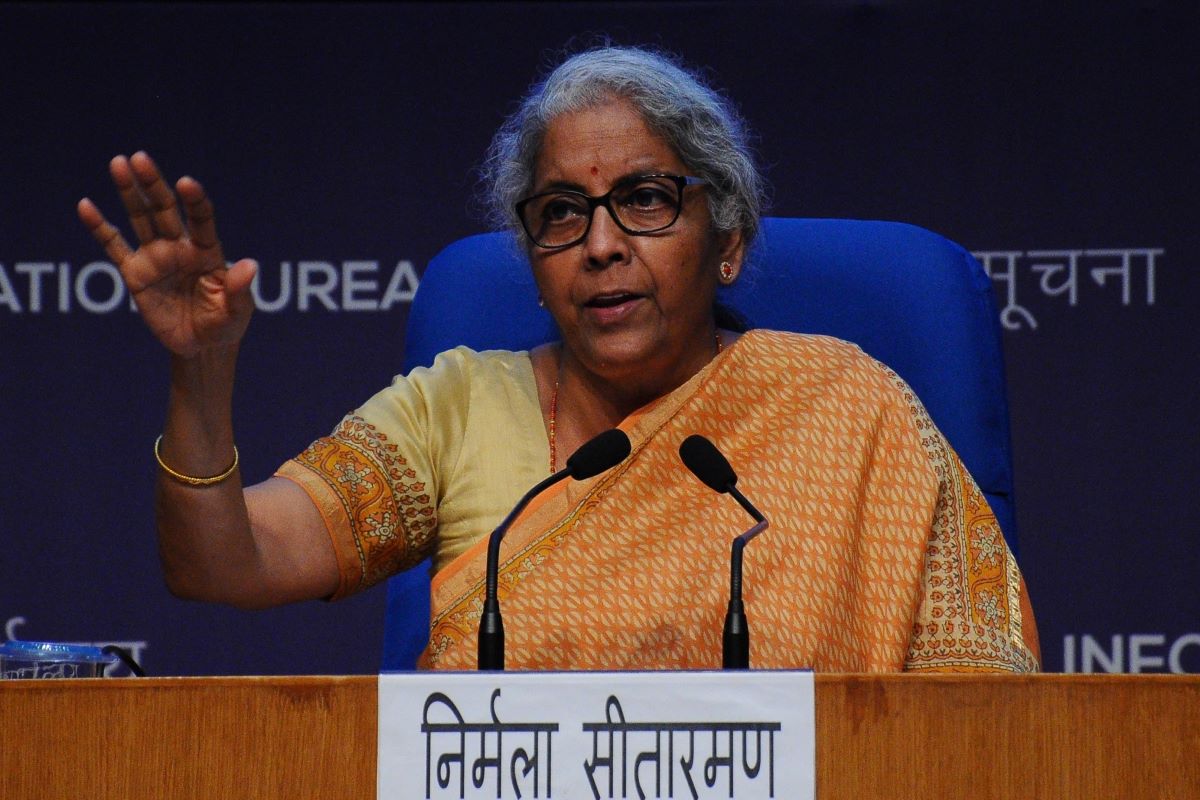FM hands over keys to homebuyers under SWAMIH Fund in Mumbai
Finance Minister Nirmala Sitharaman on Monday handed over keys to homebuyers from select projects in Mumbai Metropolitan Region (MMR).
Sitharaman said the Prime Minister has specifically asked all arms of the government to work with sensitivity and give relief to the common man.

Finance minister Nirmala Sitharaman (IANS photo)
Union Finance Minister Nirmala Sitharaman on Saturday said that the government has protected farmers from the rise in prices of fertilizers globally and an additional amount of Rs 1.10 lakh crore is being provided besides Rs 1.05 lakh crore already sanctioned in the Union Budget 2022-23.
The Minister, who made a series of tweets, also announced a reduction of central excise duty on petrol and diesel and said the government is committed to ensure that prices of essential items are kept under control. She said the world is passing through difficult times and even as the world is recovering from the Covid-19 pandemic, the Ukraine conflict has brought in supply chain problems and shortages of various goods.
Advertisement
“This is resulting in inflation and economic distress in a lot of countries,” the minister said.
Advertisement
“Despite the challenging international situation, we’ve ensured that there are no shortages/scarcity of essential goods. Even a few developed countries couldn’t escape some shortages/disruptions. We are committed to ensure that prices of essential items are kept under control,” she added.
The minister said the Narendra Modi government is devoted to the welfare of the poor.
“We’ve taken a number of steps to help the poor and middle class. As a result, the average inflation during our tenure has remained lower than during previous governments,” she said.
Sitharaman said the Prime Minister has specifically asked all arms of the government to work with sensitivity and give relief to the common man.
“Keeping in line with @PMOIndia @narendramodi’s commitment to help the poor and common man, Today, we are announcing more steps to help our people. Even during the pandemic, our government set a paradigm of welfare, especially with PM Garib Kalyan Anna Yojana. This is now acknowledged and appreciated the world over,” she said.
“Despite rising fertilizer prices globally, we have protected our farmers from such price hikes. In addition to the fertilizer subsidy of Rs 1.05 lakh crore in the budget, an additional amount of Rs 1.10 lakh crore is being provided to further cushion our farmers,” the minister added.
Sitharaman, who announced a subsidy for cylinders under the Ujjwala scheme, urged states to also reduce VAT on petroleum products to give relief to the common man.
The minister said the Centre’s decision will reduce the price of petrol by Rs 9.5 per litre and of diesel by Rs 7 per litre.
“We are reducing the Central excise duty on petrol by Rs 8 per litre and on diesel by Rs 6 per litre. This will reduce the price of petrol by Rs 9.5 per litre and of diesel by Rs 7 per litre. It will have a revenue implication of around Rs 1 lakh crore/year for the government,” Sitharam said.
“I wish to exhort all state governments, especially the states where the reduction wasn’t done during the last round (November 2021), to also implement a similar cut and give relief to the common man,” she added.
Officials said that the reduction in petrol and diesel prices will be effective from Sunday.
The minister said that this year the government will give a subsidy of Rs 200 per gas cylinder (up to 12 cylinders) to over nine crore beneficiaries of the Pradhan Mantri Ujjwala Yojana.
“This will help our mothers and sisters. This will have a revenue implication of around Rs 6100 crore a year,” she said.
The minister said the government is also reducing the customs duty on raw materials and intermediaries for plastic products where the country’s import dependence is high. “This will result in a reduction of cost of final products.”
“Similarly we are calibrating customs duty on raw materials and intermediaries for iron and steel to reduce their prices. Import duty on some raw materials of steel will be reduced. Export duty on some steel products will be levied,” she added.
Sitharaman said measures are being taken up to improve the availability of cement and through better logistics to reduce the cost of cement.
According to government data released earlier this week, wholesale inflation in India surged to 15.08 per cent in April from 14.55 per cent in the previous month due to a sharp jump in the prices of fuel, metal, food and non-food articles and chemical products.
Advertisement